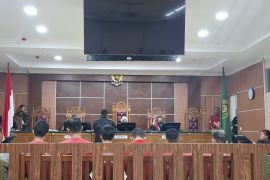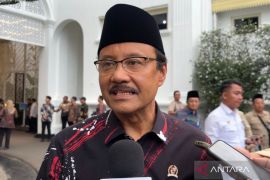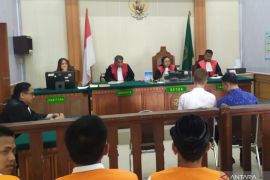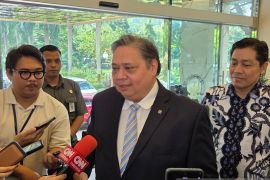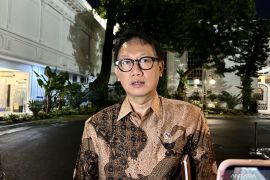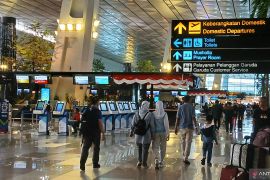"The MA Decision No. 37 P/HUM/2017 could trigger unrest among public transportation business operators who have been running the business for a long time," Soegijaprana Djoko Setidjowarno of the Catholic University said here on Tuesday.
He stated that it was not enough for the MA to take a decision only by considering Law No. 20/2008 on Micro, Small and Medium Enterprises (SOE) and Law No. 22/2009 on Traffic and Road Transportation.
Moreover, the term used in this issue is conventional tax, while the opposite term is official taxi because the latter is used for a transportation service protected by the law.
After all, the online (taxi service) business is not included in the SOE category. It has a big capital to provide a low tariff subsidy, which eventually is actually not low.
He remarked that (the MA) did not seek opinions either from experts or related transportation institutions to consider its decision.
According to Setidjowarno, it is very important to consider the Law on Consumers Protection and the Law on Business Competition and Monopoly before taking such a decision.
He noted that the Supreme Court judges should have taken more realistic thoughts in taking the decision amid the governments efforts to handle the worst public transportation services in the country.
In principle, he explained that the public transportation should pay attention to such elements as safety, security, and comfort, while the online service is only a system and does not act as a transportation operator but makes its own decision exceeding the authority of the transportation regulator.
He revealed that the government should have instruments to supervise transportation business practices anywhere in the country in order to maintain balance and orderliness of transportation on the national scale.
Setidjowarno stated that the MA judges, before taking a decision, should discuss with many stakeholders such as the Organda land transportation organization, the Indonesian Consumers Institute (YLKI), the Indonesian Transportation Society (MTI), and academicians in the transportation field.
"If later there appears to be new a problem in the region, with regard to the implementation of the decision, the MA judges must bear the responsibility," he noted.
According to Transportation Ministry Spokesman Hengki Angkasawan, there are at least 14 points in the transportation ministers regulation No. 26/2017, which are considered against Law No. 20/2008 on Micro, Small and Medium Enterprises and Law No. 22/2009 on Traffic and Road Transportation.
"The MA decided that the 14 points have no legal binding effect and ordered the Ministry of Transportation to lift articles that are related to the 14 points in the ministers regulation," he revealed.
Angkasawan reminded that public transportation business should take into account the interest of the people, which in this case is for the government to ensure orderliness, equality, and balance for the various interests of the people.
At least six people, all drivers of special rent transportation service, have objected to a number of articles in the ministers regulation and filed a judicial review with MA.(*)
Editor: Heru Purwanto
Copyright © ANTARA 2017
